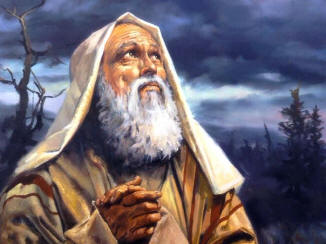Post Author: Bill Pratt
In Genesis 22 we read one of the most shocking passages in the entire Bible. In the preceding chapters, we learned that God had promised Abraham that he and Sarah would have a son, and through this son and his descendants, all people of the earth would be blessed. The descendants of this son would also receive the Promised Land as an inheritance from God. In Genesis 21, the son was born, and his name was Isaac.
As chapter 22 opens, the reader discovers that God is going to test Abraham. The fact that we are told that God is testing Abraham is a major clue that this passage is all about Abraham’s faith and obedience. We are stunned when we see what the test is: God tells Abraham, “Take your son, your only son, Isaac, whom you love, and go to the region of Moriah. Sacrifice him there as a burnt offering on one of the mountains I will tell you about.”
Abraham certainly remembers the covenant that God made with him. He knows that Isaac is the child through whom the promises will be fulfilled, so what does he do? The text says simply, “Early the next morning Abraham got up and saddled his donkey. He took with him two of his servants and his son Isaac.”
In verses 3-5, Abraham travels to Moriah with Isaac and some of his servants. Once he arrives in the vicinity, he instructs his servants to stay behind. Notice what he tells his servants, “We will worship and then we will come back to you.” Abraham assures the servants that both he and Isaac will return. This is a clue that Abraham is confident that God will somehow spare Isaac.
As Abraham and Isaac travel to the mountain, Isaac speaks up and asks where the lamb for the burnt offering is. Abraham answers that God will provide. Again, the reader sees a clue that Abraham knows that God will not break the covenant He made with Him.
The climax of the passage occurs when Abraham has bound up Isaac. Just as Abraham reaches for the knife, the angel of the Lord calls out to him, “Do not lay a hand on the boy. Do not do anything to him. Now I know that you fear God, because you have not withheld from me your son, your only son.”
Abraham looks up and sees a ram caught in a thicket. He sacrifices the ram instead of Isaac, and then names the place “The Lord will provide,” because He indeed did provide.
In verses 15-19, God reiterates the covenant He has made with Abraham. He reassures him that his descendants will be as numerous as the stars in the sky and as the sand on the seashore, that his descendants will take possession of the land promised to them, and that through his offspring all nations on earth will be blessed.
We would be remiss if we did not point out the foreshadowing in this story of the sacrifice of Jesus Christ. Many scholars believe that the mountain where Isaac was to be sacrificed is located where the temple would be built in the city of Jerusalem. This is where Jesus would be sentenced to die some 2000 years later. Just as Abraham did not withhold his one and only son, neither did God withhold his one and only son, Jesus.
 In verses 1-6 in Genesis 15, Abraham has an incredibly important conversation with God. First, in verse 1 God reassures Abraham that he should not be afraid, that God is his reward. In verses 2-3, however, Abraham questions God about the promise God made to Abraham previously. Recall that God promised Abraham that his descendants would become a great nation in Genesis 12.
In verses 1-6 in Genesis 15, Abraham has an incredibly important conversation with God. First, in verse 1 God reassures Abraham that he should not be afraid, that God is his reward. In verses 2-3, however, Abraham questions God about the promise God made to Abraham previously. Recall that God promised Abraham that his descendants would become a great nation in Genesis 12.